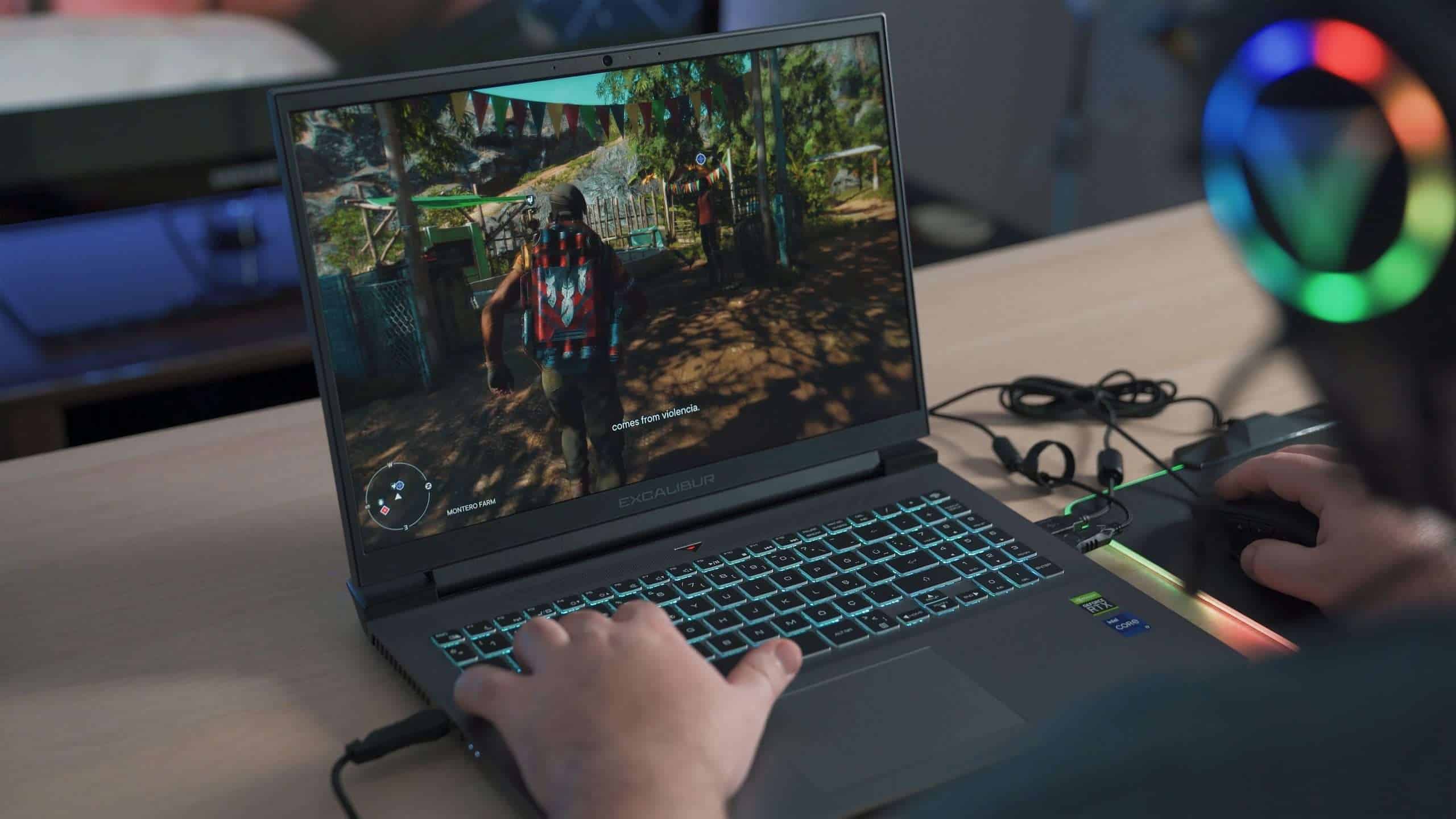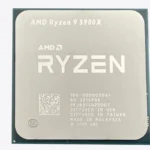If you’re wondering whether it’s safe to leave your gaming laptop running overnight, the answer is generally yes, as long as you take proper precautions. While there are concerns about potential damage or wear and tear, with the right care, leaving your gaming laptop on overnight should not pose immediate risks. However, it’s important to consider the impact on the device’s performance and longevity. One key concern is the effect of prolonged use on the laptop’s components and battery life. Although keeping the laptop plugged in overnight may not be immediately risky, doing so frequently can contribute to battery wear. Therefore, it’s crucial to understand the implications of nighttime use. By following certain guidelines, you can manage the risks and ensure that your laptop remains in good working condition for tasks or gaming sessions the next day.
Should You Leave Your Gaming Laptop Plugged in Overnight?
Gaming laptops are powerful machines, but they also generate a lot of heat. It’s normal to wonder whether it’s okay to leave them on overnight for tasks like downloads or updates. Here’s what you need to consider:
Potential Risks of Leaving Your Gaming Laptop On Overnight
- Heat and wear: Running your laptop for extended periods can lead to heat buildup, causing wear and tear on components like the battery and processor.
- Battery degradation: While modern laptops have power management features, constantly keeping the battery at 100% can shorten its lifespan.
- Fire hazard: While rare, overheating components or a faulty battery can potentially lead to a fire risk if left unattended.
- Unnecessary power usage: Leaving a laptop on wastes energy and increases your electricity bill.
When it Might Be Acceptable
Here are some situations where it might be okay to leave your laptop running overnight:
- Large downloads or updates: If you have a major software update or a very large file to download, letting it run overnight might be convenient.
- Specific intensive tasks: Some specialized software might require long rendering or processing times that necessitate leaving the laptop on.
Best Practices for Leaving Your Gaming Laptop On
If you do choose to leave your laptop on overnight, here are some tips to minimize risks:
| Tip | Description |
|---|---|
| Elevate your laptop | Use a laptop stand or cooling pad to improve airflow and reduce heat buildup. |
| Close unnecessary programs | Ensure only essential programs are running to reduce the load on your system. |
| Use power-saving mode | Activate power-saving features in your laptop’s settings to lower energy consumption. |
| Place in a well-ventilated area | Avoid leaving your laptop on soft surfaces like beds or blankets that might block airflow. |
Alternatives to Consider
- Schedule tasks: If possible, schedule downloads or updates to happen during off-peak hours when you are not using the laptop.
- Sleep or Hibernate mode: Putting your laptop into Sleep or Hibernate mode can help preserve battery life while still allowing tasks to complete.
Important: If you notice your laptop getting excessively hot or if the battery seems to be degrading quickly, it’s best to avoid leaving it on for extended periods of time.
Key Takeaways
- It’s generally safe to keep a gaming laptop on overnight.
- Prolonged use can affect the laptop’s battery and component longevity.
- Observing best practices for overnight usage safeguards the laptop’s health.
Implications on Performance and Longevity
Keeping a gaming laptop on overnight can affect its performance and longevity. This section explores the health of the battery and how heat management contributes to the safety of the laptop’s components.
Battery Health and Lifespan
Lithium-ion batteries power most gaming laptops. They have a limited number of charge cycles before they begin to degrade. Continually keeping a laptop plugged in can lead to fewer discharge cycles, which may extend the battery’s lifespan in terms of years. However, batteries that remain at full charge for an extended period can undergo stress, which might reduce their long-term capacity.
- Best practices for battery health:
- Charge the laptop battery when it’s low and unplug once full.
- Reduce battery strain by not leaving the laptop plugged in at all times.
Thermal Management and Component Safety
Heat is a by-product of electronic devices and a gaming laptop is no exception. Excessive heat can harm the performance and lifespan of internal components like the GPU and graphics card. Proper thermal management involves ensuring clear ventilation for cooling fans to operate efficiently and avoiding dust build-up, which can insulate heat.
- Tips for keeping your laptop cool:
- Use cooling pads to help dissipate heat.
- Clean the laptop’s air vents regularly.
- Operate the laptop in a cool, ventilated space to reduce overheating risks.
Employing a surge protector can safeguard against power surges that might damage the laptop when left on overnight. Overall, balancing battery charge cycles, managing heat, and ensuring electrical safety can help maintain a gaming laptop’s performance and extend its service life.
Best Practices for Overnight Usage
When leaving a gaming laptop on overnight, it is vital to manage power effectively and keep the system in top condition.
Power Management and Software Updates
Power Management: Modern laptops have settings to avoid overcharging even when left plugged in overnight. It’s best to set your laptop to go into sleep mode after a period of inactivity. This can be done through the power settings in your operating system, like Windows 11 or macOS. Additionally, keeping the laptop on AC power helps maintain full charge, allowing for instant use without waiting for it to boot up.
- Set your laptop to Sleep Mode after a certain time of inactivity.
- Use the original charger that came with your laptop to prevent damage.
- Check that your laptop is running on AC power to maintain battery life.
Software Updates and Maintenance: Use overnight hours for maintenance tasks such as system updates, virus scans, or large downloads. This ensures convenience as these tasks can be done without interrupting your daytime laptop use.
- Schedule software updates and virus scans for overnight processing.
- Enable automatic downloads of large files or updates while away.
Maintenance and Operational Tips
Keep It Clean: Dust and dirt can build up and cause overheating. Make sure your laptop is clean and that the vents are not blocked to prevent wear and tear.
- Clean the laptop’s surface and ensure good airflow to prevent overheating.
Reboot Regularly: Rebooting is a simple task that can prevent many issues. A regular reboot can help your laptop run smoothly and clear temporary files.
- Perform a full shutdown and restart of your laptop every few days.
Avoid Wear and Tear: Prolonged use can lead to increased wear and tear. If you leave your PC on overnight often, make sure to monitor its temperature and performance for any signs of stress.
- Monitor system temperature and performance.
- Unplug the laptop occasionally to cycle the battery, which can help with its longevity.
Following these practices can help ensure that your gaming laptop remains in good condition, even when used overnight.
Frequently Asked Questions
In this section, we address common concerns about leaving gaming laptops on overnight. We explore issues related to overheating, lifespan, power management, and potential performance implications.
Can leaving a gaming laptop on overnight lead to overheating?
A gaming laptop may overheat if it runs demanding tasks for long periods without proper cooling. Ensuring it’s on a hard, flat surface to allow good airflow helps prevent overheating.
Is it detrimental to the lifespan of a gaming laptop to leave it on for extended periods?
Continuous use can contribute to wear and tear on a gaming laptop’s components. Moderate use and proper ventilation can help retain its lifespan.
Is there a risk of damage if a laptop is kept plugged in overnight?
Most modern gaming laptops are designed to handle being plugged in for extended periods. Using the original charger minimizes any risk of damage.
What are the potential consequences of leaving a laptop in sleep mode overnight?
Leaving a laptop in sleep mode overnight typically has minimal impact. It reduces power usage while allowing a quick return to operation.
What might cause a laptop to not turn on after being left on all night?
Reasons could include software crashes or hardware failures. Regular updates and maintenance can decrease the chances of such issues.
Should gamers power down their laptops nightly to maintain performance?
Turning off a laptop nightly can clear temporary files and give hardware rest. However, modern laptops are capable of managing these concerns automatically.







